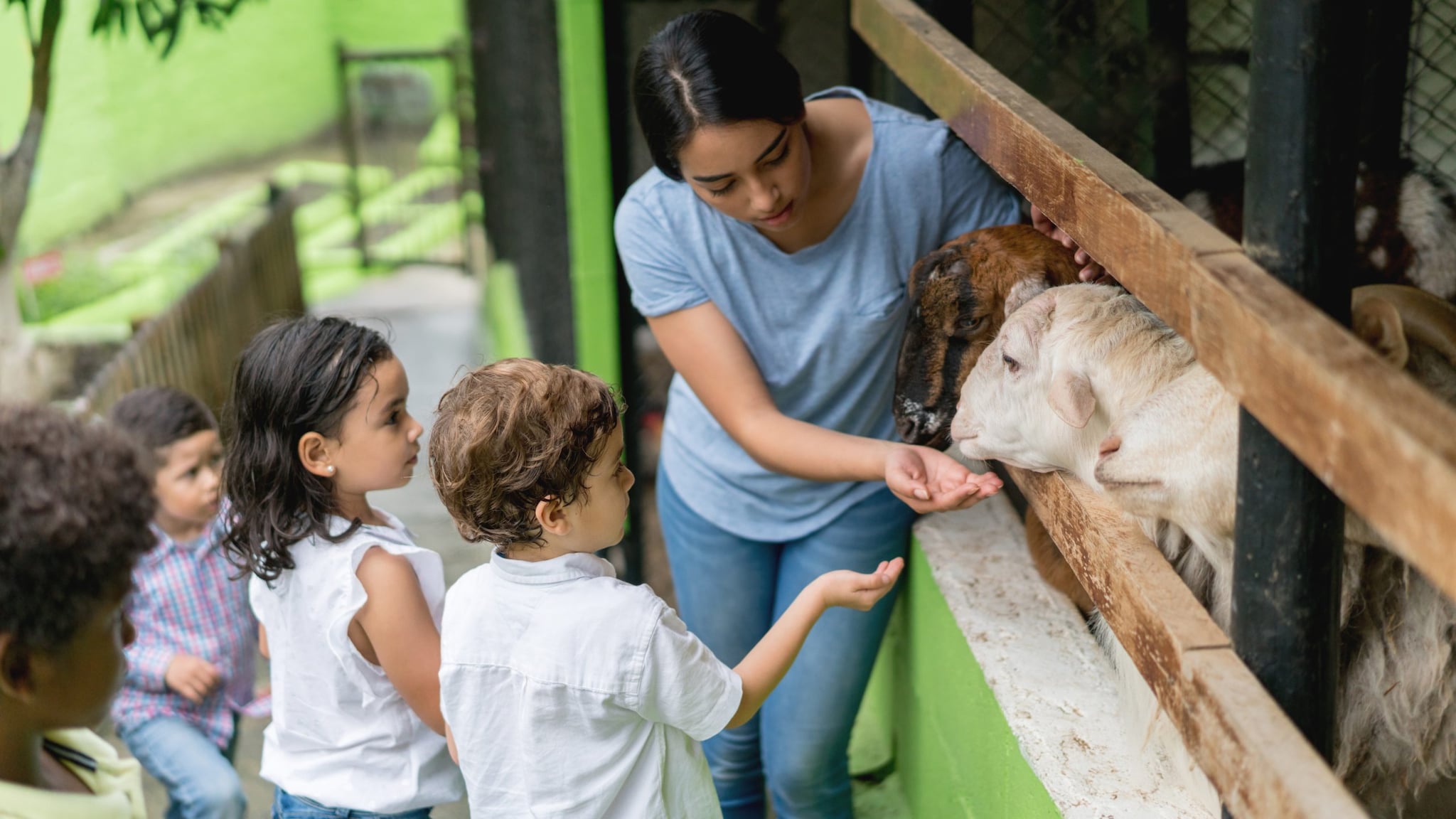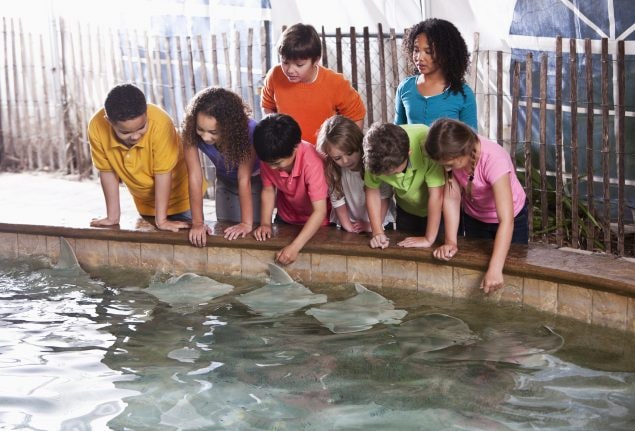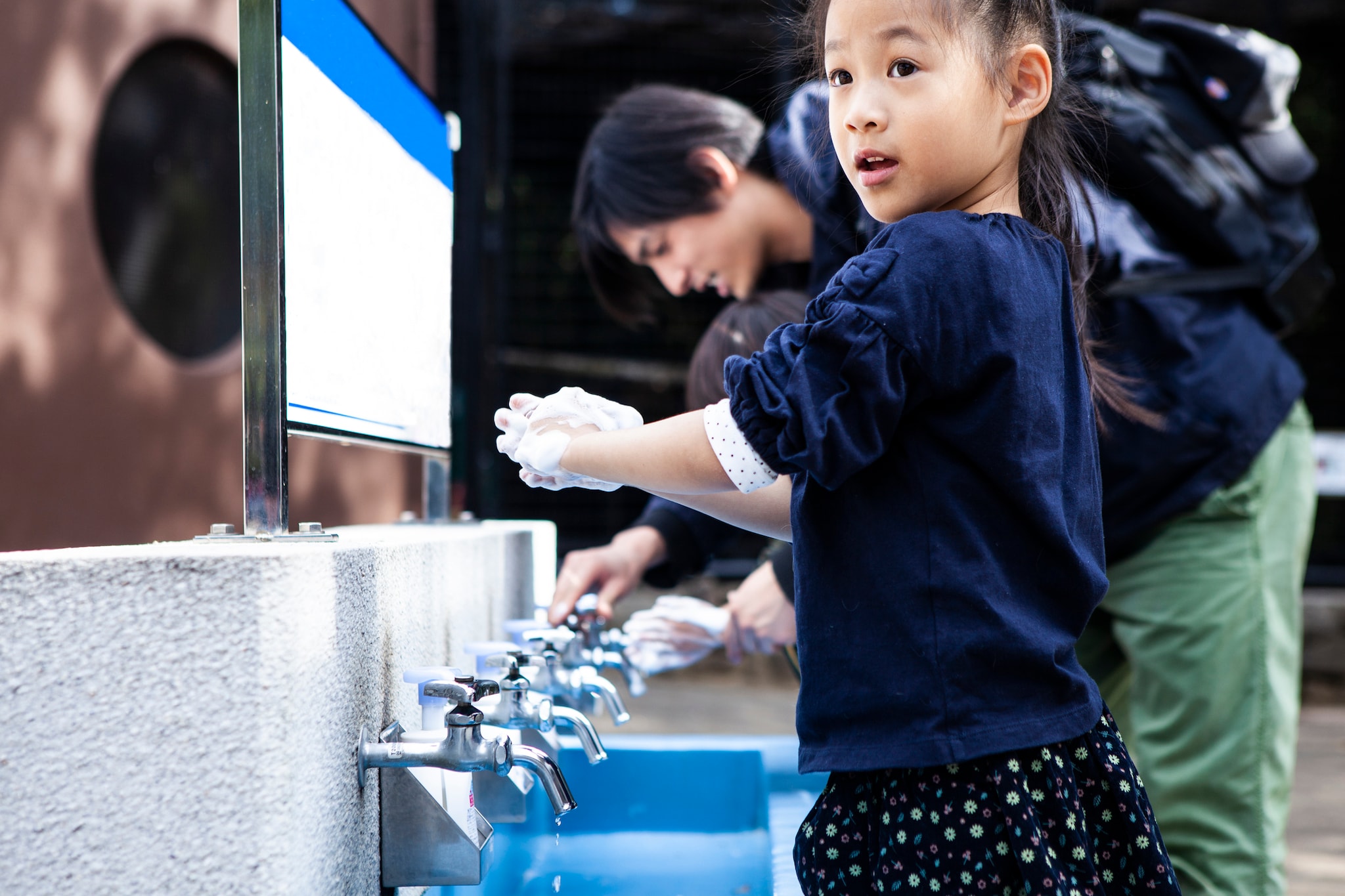Key points
- Even animals that look clean and healthy can carry germs.
- Wash your hands after petting animals or being in animal enclosures.
- Don't eat or drink around animals.
- Children under 5 shouldn't touch reptiles, amphibians, or poultry. These animals are more likely to make them sick.

Why it's important

Interacting with animals at fairs, educational farms, petting zoos, summer camps, aquariums, and other places can be educational and fun. It helps people learn about and experience animals they may not see in their daily lives.
However, it's important to know that animals sometimes carry germs that can make people sick. Every year, many people get sick after visiting an animal exhibit. From 2010-2015, there were about 100 outbreaks of illness in people linked to animals in public settings. Public health officials saw reports of illnesses from places like zoos, fairs, and educational farms.
Some of the most common harmful germs people get from animals at exhibits are E. coli, Cryptosporodium, and Salmonella. However, there are also many other types of germs that can spread between animals and people.
The following people are more likely to get sick from the germs animals carry:
- Children younger than 5 years old
- People with weakened immune systems
- Adults 65 and older
These groups should take extra precautions at animal exhibits.
Even animals that look clean and healthy can carry harmful germs. Areas where animals live, or roam can be contaminated. You don't have to touch an animal to get sick.
Tips
Wash your hands

Find where the handwashing stations are located. Wash your hands right after touching animals or anything in the areas where they live, roam, or eat. Wash your hands when you leave animal areas, even if you didn't touch the animals or if you wore gloves.
Use an alcohol-based hand sanitizer with 60% alcohol when soap and water is unavailable. Wash your hands with soap and running water as soon as you can.
Keep food and animals separate
- Don't eat or drink around animals.
- Keep food and drinks away from animal areas.
- Don't share your food with the animals.
- Don't eat or drink raw (unpasteurized) products.
Keep children safe around animals
- Always supervise children around animals.
- Leave items like strollers, cups, or toys outside the exhibit.
- Don't let children sit or play on the ground in animal areas.
- Teach children to approach animals with caution and follow the rules.
- Don't let children under 5 touch reptiles, amphibians, or poultry (like chickens or ducks).
Don't let children put their fingers or objects (like pacifiers) in their mouths when they're around animals or in animal areas. Watch children to make sure they don't put their fingers or objects near an animal's mouth, even if the animal seems friendly.
Always follow the written or verbal rules from staff at contact exhibits. For example, some contact exhibits have a "two-finger touch" rule.
